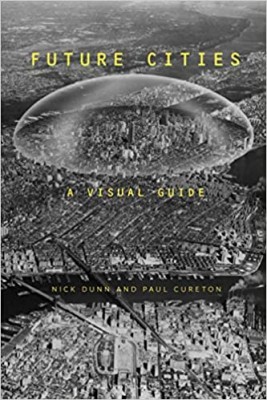By Nick Dunn and Paul Cureton
What might our cities look like in ten, twenty or fifty years? What kind of lifestyles may evolve and how will we move around, where will we live and work? How may future cities face global challenges? Imagining the city of the future has long been an inspiration for many architects, artists and designers. This book explores how cities of the future have been visualised, what these projects sought to communicate and what the implications may be for us now - a visually accessible resource demonstrating how the methodology of futuring works and why it is valuable for architecture and urbanism. Although many of the visions for future cities were never built and remained imaginary or the backdrop for a fictional narrative, this does not mean they are unworthy of attention. Their importance extends in other ways through their questioning of reality. A multitude of climatic, social, economic and cultural pressures for global cities mean that more than even the way we vision the future has become particularly important. But how to best approach the future? This is a highly illustrated, useful and informative text to support those interested in developing an understanding of the built environment; the dreams, ambitions and desires that shaped it from early examples of the ideal society from the 16th century to contemporary projected cities envisioned for the rest of the 21st century and beyond.
London, 2020, 24.6cm x 18.9cm, 224pp, illustrated, Paperback.
